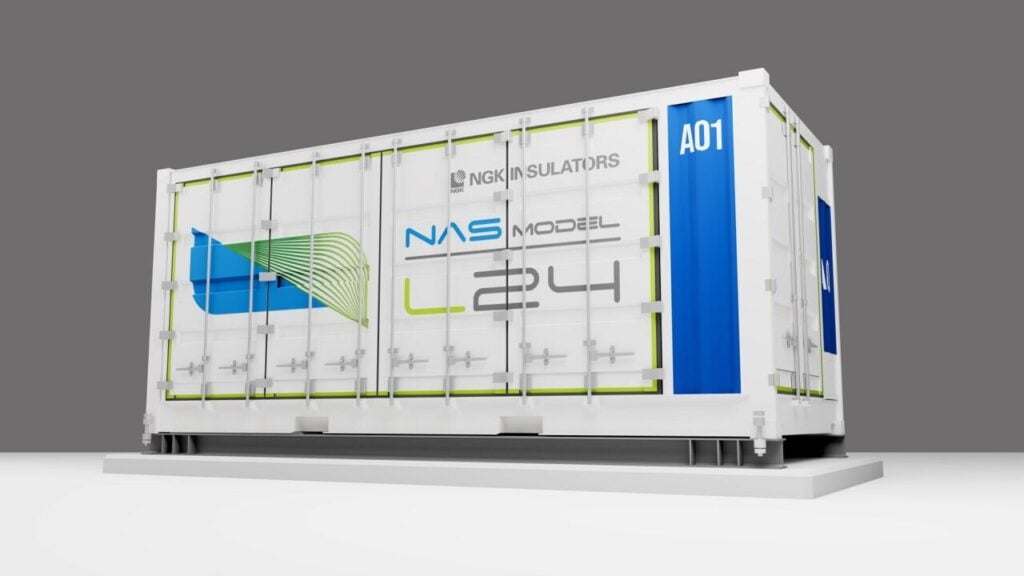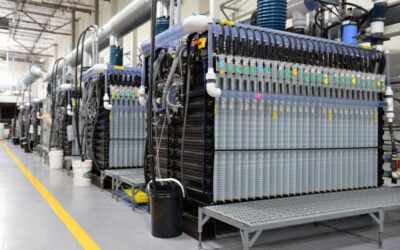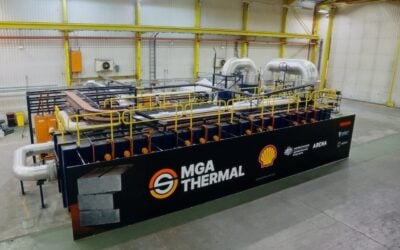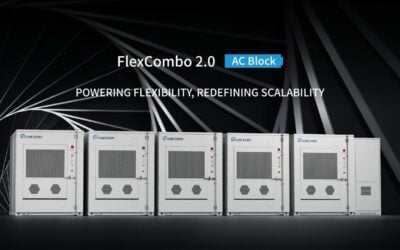
One of the world’s most widely deployed non-lithium electrochemical energy storage technologies has received an upgrade, with the launch of NGK and BASF Stationary Energy Storage’s the NAS MODEL L24.
The new ‘advanced’ version of the sodium-sulfur (NAS) battery, first commercialised by Japanese industrial ceramics company NGK more than 20 years ago, offers a 20% lower cost of ownership compared to previous models, according to the company and its partner BASF Stationary Energy Storage.
It also has a cell degradation rate of less than 1% per year and an improved thermal management system that enables longer continuous discharge.
The two companies co-developed the new product, which they claimed enables a smaller footprint of containerised systems per installation and reduces maintenance costs.
Try Premium for just $1
- Full premium access for the first month at only $1
- Converts to an annual rate after 30 days unless cancelled
- Cancel anytime during the trial period
Premium Benefits
- Expert industry analysis and interviews
- Digital access to PV Tech Power journal
- Exclusive event discounts
Or get the full Premium subscription right away
Or continue reading this article for free
Around 720MW/5,000MWh of NAS Battery systems have been deployed worldwide to date. Recently announced orders or projects include a 230MWh supply deal for a green hydrogen electrolysis cluster on the Baltic Shore of northern Germany, the battery tech’s first deployment in Eastern Europe with a 500kW/2,900kWh (5.8-hour duration) project in Bulgaria, a first-ever project deal in Australia and a 70MWh project in Japan which will enter energy trading markets.
The battery is designed to provide bulk storage of electricity for medium- to long-duration energy storage (LDES) applications requiring 6-hour storage or more. It operates at a temperature of 300°C, featuring a sulfur anode, sodium cathode and proprietary ceramic electrolyte.
The lack of degradation has long been one of its claimed key features, with no degradation expected for the first 15 years of an expected 20-year lifetime in the field for previous iterations, and an even better degradation profile claimed for the new MODEL L24 product launched earlier this week (10 June).
The new system is certified compliant with relevant energy storage industry safety standards including UL1973 and UL9540.
BASF has partnered with NGK to develop and market the NAS technology since 2019, marking the German chemicals company’s first entry into the energy storage market and closely followed by the formation of its BASF Stationary Energy Storage subsidiary.
NGK energy storage division VP and general manager Ryugo Takeda said the improvements come after an “intense and effective collaboration” between the two partners.
“The lower degradation rate of less than 1% per year is a remarkable result for the energy storage industry,” Takeda said.
“With the NAS MODEL L24 our customers will be able to reduce their initial investment in battery storage system as well as save on long-term project costs, approximately 20% over project lifetime,” Frank Prechtl, managing director of BASF Stationary Energy Storage said.





